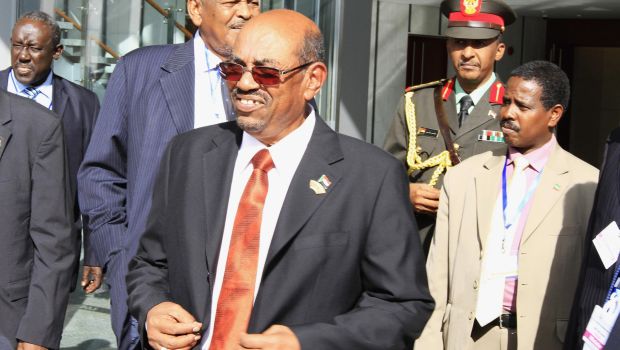The idea that Sudan’s national salvation government has reached a dead end and will not survive simply cannot be justified, because it has worked tirelessly in its quest to secure opportunities for political participation for all active forces in Sudanese society. It also continues to think about removing the obstacles to economic and social development.
This is clearly evident from the development of Sudan’s economy, in addition to the developments that has taken place in various service sectors, including education, healthcare and roads. This is not to mention other infrastructure projects. Sudan today cannot be compared to the situation before 1989, or even since the independence of Sudan.
The government should be praised, because it has been ceaselessly removing obstacles to the country’s progress. Just a few examples will illustrate their success:
First, some people believe with some certainty that we have not left military rule, which relies on military power and disregards political forces. The national salvation government, however, is making serious attempts to distance itself from the vicious circle of military government. For the first time in Sudan’s history, a regime has changed from military to civilian, allowing political parties to contribute to, and participate in, power, in an attempt to achieve a peaceful transition.
The national salvation government adhered to this path despite constant opposition from certain political forces skilled in the fields of isolation, political exclusion and regime toppling. They work in ways that have no relation to democracy or the people’s will, which can only be expressed through the ballot box.
Second, the national salvation government has relied on the principle of dialogue with all political forces, without the slightest inclination to ignoring opposition voices. They have remained dedicated to that goal even in the face of armed movements that use weapons to achieve political aims. This is exemplified by the respect shown for the will of the people of South Sudan, who wanted to secede and did, proving the credibility of the national salvation government.
Third, the national salvation government’s efforts are focused on the need to keep the public safe and secure. They have kept the Sudanese people safe from political ventures and demands that use economic issues as a means to achieve their own ends, burning down public and private institutions and harming the interests of society and the state.
Fourth, the government remains true to peaceful participation in decision-making about the draft constitution, which should meet the public’s demands by clarifying the rights and obligations of citizens and their relationship with the state. They have done this without excluding any party, sect or group, regardless of their ideology.
Fifth, the national salvation government has been firm in its steps towards a democratic system, which is based on the peaceful transfer of authority. It has welcomed the results of transparent elections in its work to reach a stable system representative of the people’s will.
We can therefore say that those who take the opposite path are the ones who are placing obstacles in the path of the national salvation government. This government will be able to overcome all of these obstacles and disappoint anyone who stands in its way, thanks to its vast experience.
There is a massive difference between those who try to remove obstacles and those create them. The Sudanese people are moving forward towards peace, development and growth, and it is unfair to place further obstacles in their path—but they will overcome them regardless.
What proves that the national salvation government has not reached a dead end is that it faced a vicious war for more than 10 years, but it was still not defeated by any army or foreign enemy. It followed the path of political will and direct dialogue, resulting in the signing of a comprehensive peace agreement.
Those behind the national salvation government and its achievements provide clear evidence that the government has removed most of the obstacles that exacerbated the war. This is clear just by looking at a few of their successes. In 1989, the Bank of Sudan had a balance of just USD 100,000, but that has grown over the years to reach billions. Infrastructure has been built to deliver services such as electricity, communications and enhanced agricultural production, to name only a few examples. The number of students accepted at universities has risen from 50,000 to more than half a million. The scope of general and higher education has expanded, and there are now more than 60 Sudanese universities specializing in different fields of study. Sudan has became a destination for Arab, African and Asian students. The volume of electricity generated in Sudan has risen from 200 megawatts to thousands, and the disruption in electricity supply to homes, factories and farms has been resolved, whereas once there were constant blackouts. Even more, the national salvation government has managed to end the chronic shortage of basic commodities and medicines, which had been a cause for fear and concern for the public.
We are all scarred by the memory of how people used to queue for a few pieces of bread and a few ounces of sugar in the 1980s and 1990s. We must bear that suffering in mind before we make such bold statements about the national salvation government and its alleged failures. It has overcame all challenges and destroyed all obstacles in its path, thanks to political will that recognizes the need to shoulder national responsibility with the participation of everybody.
“Salvation” is a suitable term: the national salvation government has specialized in opening channels, removing obstacles, and resolving crises in difficult circumstances.
The counterpoint to this article can be read here.
